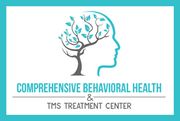Psychiatric Professionals Explain Bipolar Disorder

Bipolar disorder is a mental condition that causes irregular mood swings, volatile energy levels, and an altered life outlook. The disorder is often mistaken for depression, which results in those with bipolar disorder being misinformed about how to best treat it. This article addresses some basic questions about bipolar disorder to better help people understand the condition and seek the proper care.
Bipolar Disorder Basics
What Are the Symptoms?
 People with bipolar disorder experience periods of intense mood fluctuations. During manic episodes, or elevated moods, people may be unusually energetic, seem extremely happy or very irritable, make poor decisions, and experience a reduced need for sleep.
People with bipolar disorder experience periods of intense mood fluctuations. During manic episodes, or elevated moods, people may be unusually energetic, seem extremely happy or very irritable, make poor decisions, and experience a reduced need for sleep.
During depressive mood swings, people may experience very low energy, a loss of hope or joy, reduced social skills, and irregular sleep patterns. In severe episodes, they may even attempt to inflict self-harm. Some individuals with bipolar disorder may attempt to self-medicate with substance abuse, which tends to make the condition worse.
What Causes Bipolar Disorder?
There are many possible factors that contribute to the development of bipolar syndrome. Scientists agree that genetics can play a role, and those with a family history are more likely to develop the condition. Environmental factors such as childhood abuse, long-term stress, or traumatic events are also known causes. In addition, hormonal imbalances are a leading trigger of bipolar symptoms.
What Are the Treatment Options?
Traditionally recommended treatments include psychotherapy, antidepressants, and mood stabilizing medication. While commonly prescribed, antidepressant medication can result in many negative side-effects for bipolar patients and does not produce adequate results for all.
Recent studies suggest transcranial magnetic stimulation, or TMS, may be a viable alternative to treat bipolar disorder. This therapy uses magnets to stimulate neurological activity in the brain to reduce depression. Psychotherapy also helps patients recognize symptoms and identify triggers to help reduce episodes and guard against remission.
If you think you or a loved one is experiencing symptoms of bipolar disorder, it’s important not to self-diagnose or attempt to self-medicate. Instead, rely on a team of trained experts to help you determine the issue and design an appropriate treatment plan. The therapists and wellness professionals at Comprehensive Behavioral Health in Staunton, VA, are here to help. The clinic’s doctors and psychiatrists offer a range of mental health and psychiatric services to help you “get back to you.” To learn more about taking back your health and happiness, visit them online or call (540) 688-2646 to make an appointment.
About the Business
Have a question? Ask the experts!
Send your question

